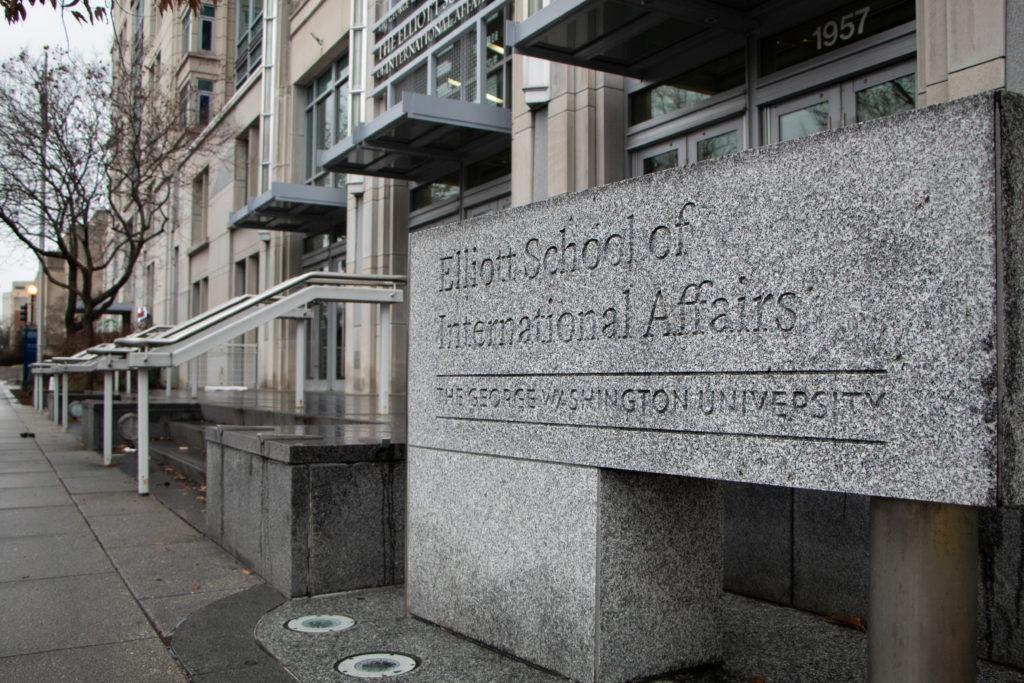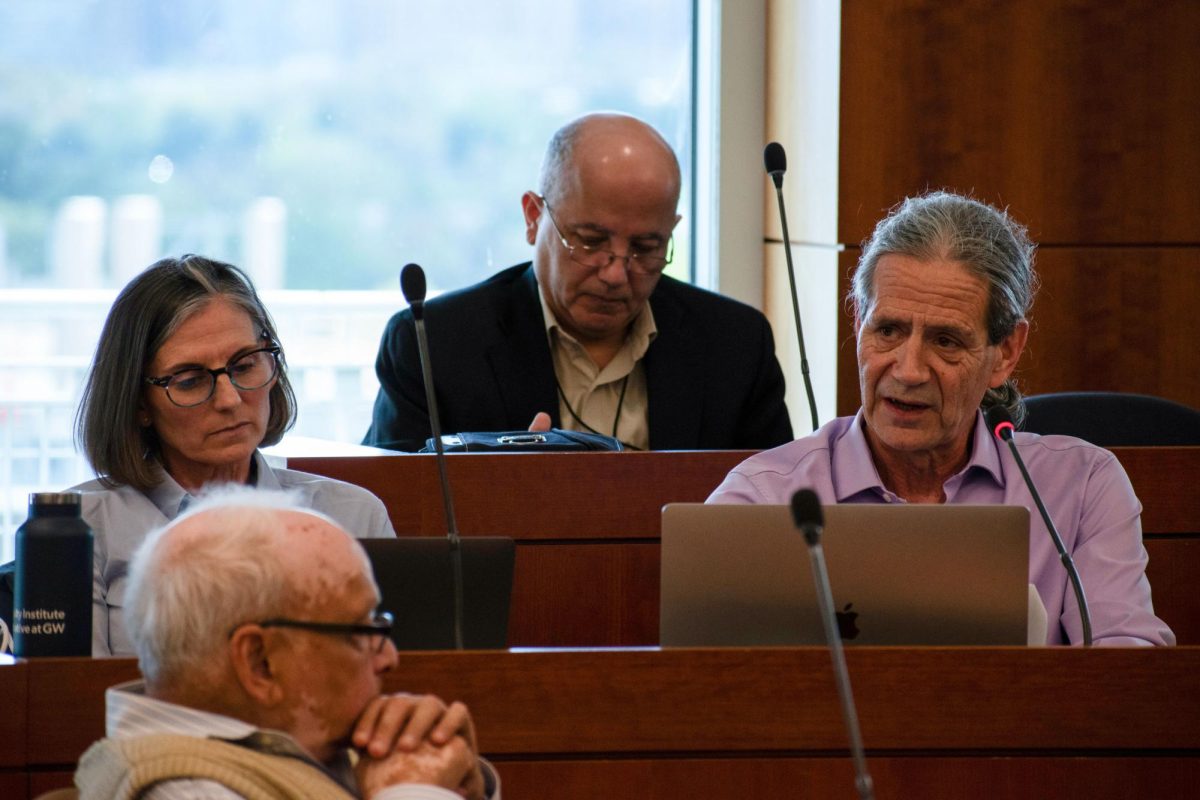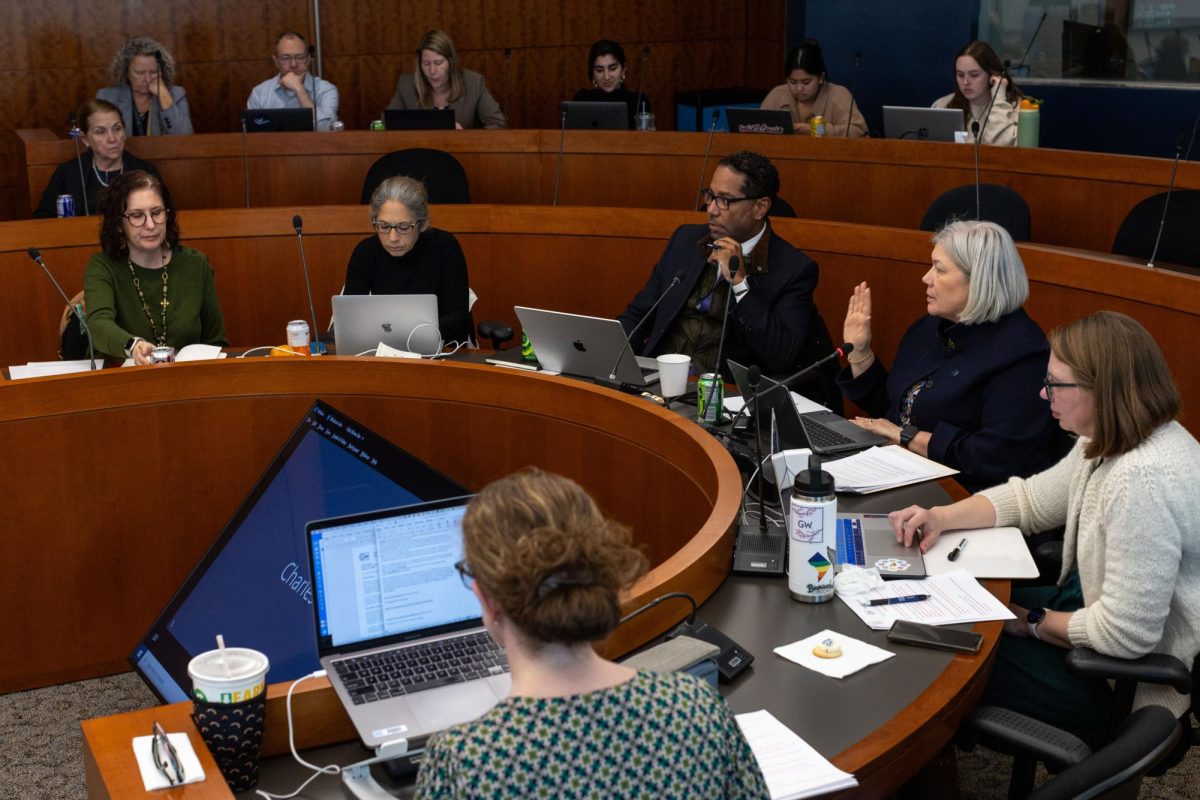The Elliott School of International Affairs is offering its first-ever Africa-focused economics course this semester, following a student-run initiative to promote the study of the contemporary African continent.
Students in the GW African Development Initiative, an interdisciplinary student organization promoting the study of Africa, said they spearheaded the effort for the Elliott School to establish Africa in the Global Economy, a course exploring Africa’s economy and its relationship to the global market, over the past several months. Ayooluwa Akintayo and Adedasola Adeniyi, seniors majoring in international affairs who are enrolled in the course, co-founded GWADI in 2020 after they noticed a lack of courses on Africa in the school, pushing them to launch a campaign to increase and diversify courses about Africa at GW.
“We’re both interested in African development and African issues, and we were looking for courses and resources to connect students who are interested in engaging with African issues and development, which are available for the other regions in Elliott, but we saw that gap for Africa within the Elliott School,” Adeniyi said.
There are currently six international affairs courses on the African continent available this semester, compared to 20 international affairs courses on the Eurasian continent, according to the schedule of classes.
Adeniyi said GWADI worked alongside Jennifer Cooke – the director of the Institute for African Studies, an Elliott School hub for students and faculty interested in the study of Africa – to develop the course and find an instructor. Laird Treiber, a professorial lecturer at the Elliott School, currently teaches the course.
She said a webinar discussion featuring African business and policy leaders on economic production in African countries that GWADI hosted in April 2021 partially inspired the course. GWADI launched a series of monthly chats with Cooke in October for students to share which events or initiatives they want to see from the Institute for African Studies.
“I believe this course is so crucial to anyone interested in economic development in Africa, or even beyond that, interested in learning about African issues,” Adeniyi said.
Akintayo said the Elliott School’s courses on Africa are frequently “repetitive” in their curriculum and instructors often assume their students are not informed on the continent. She said professors teaching courses on Africa often use the same academic resources, like award-winning Nigerian author Chimamanda Ngozi Adichie’s TED Talk on the underrepresentation of various cultures, which has generated millions of views.
“I’ve taken basically 99 percent of the African courses at GW, and a lot of them have been repetitive,” Akintayo said. “We’ll start with Chimamanda Ngozi’s TED Talk, which we’ve all seen, but they make sure to show it because they don’t think anyone has seen it, and she’s the only African author on the continent. And then we’ll do an African map, and they just assume no one knows anything about the continent, and it just feels condescending.”
Adeniyi said the launch of the economics course and GWADI’s broader course campaign aims to encourage the University to move away from the primary academic focus on the “doom and gloom” narrative about Africa’s history of colonization and focus on the continent’s future, like its current economic growth.
“We’re also trying to improve the existing courses here at GW, making sure they’re not all focused on the past and colonization and history,” Adeniyi said. “Not to say that isn’t important, it’s important to understand the past to know where we are, and why the present is what it is, but also focusing on informing people about the present and looking toward the future.”
Akintayo said GWADI and Cooke worked to find an African instructor to teach the course but found no one in the D.C. area who was available. She said through their organization’s broader course campaign, they hope to increase the diversity among faculty members involved in African studies at GW going forward.
The Elliott School issued its third consecutive diversity action plan in fall 2021, which featured a goal of increasing diversity among the school’s faculty.
GWADI’s African course campaign aims to push the Elliott School to create interdisciplinary courses on various regions of the continent, offer co-curricular academic opportunities for students interested in African studies, incorporate domestic African scholars’ work into curriculum and increase funding for African studies institutes and organizations in the school, like the Institute for African Studies and GWADI.
The campaign also includes a Google Form, linked in GWADI’s Instagram account’s bio, that students and faculty members can fill out to share their experience and feedback about engaging with African studies at GW.
“Having a culturally diverse faculty is something that we want to focus on for the future,” Akinyayo said.
Treiber, the adjunct professor who teaches the economics course, said he hopes to emphasize how “dynamic” Africa’s economy is by comparing and contrasting the different forms of economic production in the continent’s 54 countries. He said student discussion will be an integral aspect of the course, which 14 students are currently registered for out of 19 total spots, according to the University’s course registration portal.
“If you look at what’s happening, for instance, on finance and investment, if you look at energy and climate, if you look at agriculture and things like that, that’s a different lens, and it allows you to compare and contrast within Africa,” Treiber said.
Treiber said he will offer a governmental perspective on the course based on his more than 30 years of experience in the State Department as a foreign service officer working to advance the United States’ economic interests abroad. He said he has specialized in African issues since 2014 and now works as a senior associate at the Africa Program in the Center for Strategic and International Studies – a U.S. nonprofit research organization and think-tank.
“I certainly would welcome any student questions or discussions of how would the U.S. government or how did the U.S. government look at this, or for instance, did the U.S. government get something right or wrong,” Treiber said.
Treiber said through the economics course, he hopes to challenge the lack of attention African countries and the continent’s development receive in international affairs scholarship.
“I was super excited by the opportunity because this gives me a chance to frankly distill a lot of what I’ve been doing over the last nine years into hopefully something more coherent and tangible, but also to help get at, what I would argue is still a bigger issue of the underappreciation of Africans, of where Africa is today and where it’s likely to be going over the next 20, 30 years,” Treiber said.








